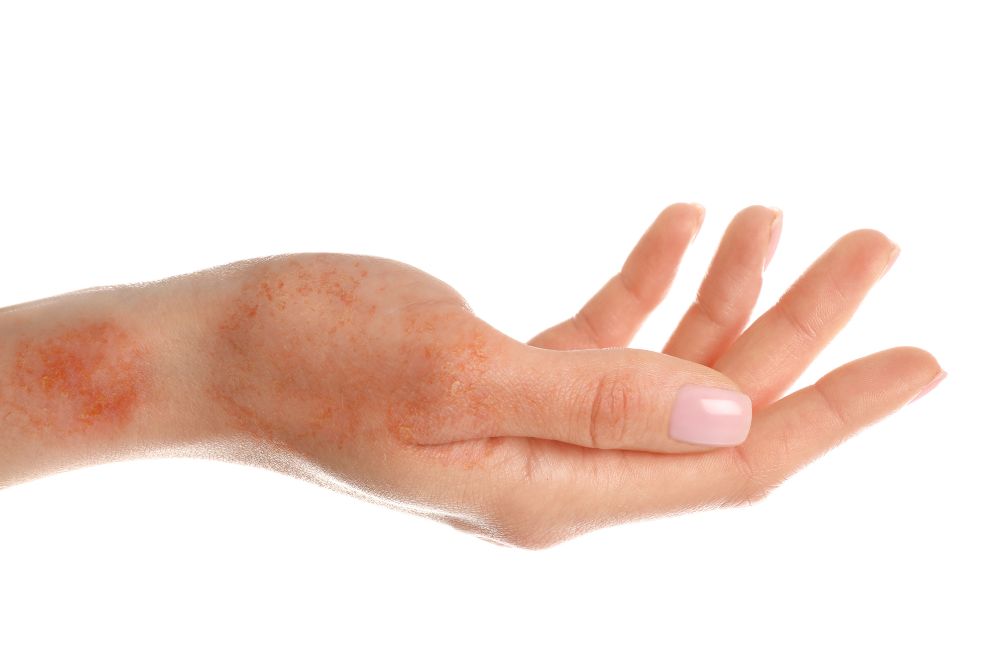
Dry skin, medically known as xeroderma, is a common skin condition that affects 1 per million in the United States. Dry skin leaves a tight, itchy, and uncomfortable feeling, and although it is often not severe, it can sometimes lead to more significant skin issues if not properly managed. Understanding dry skin, its causes, and effective treatments is essential, especially when deciding when to seek help from a primary care doctor in Bridgeport, CT.
Key Takeaways
Understanding Dry Skin
Types of Dry Skin
Causes of Dry Skin
5 Signs Your Dry Skin Needs a Primary Care Doctor in Bridgeport, CT
Diagnosis, Treatment, and Prevention
Frequently Asked Questions (FAQs)
Experiencing Dry Skin and Irritation? Choose DOCS Primary Care – Bridgeport for Your Skin Care Needs in Bridgeport, CT
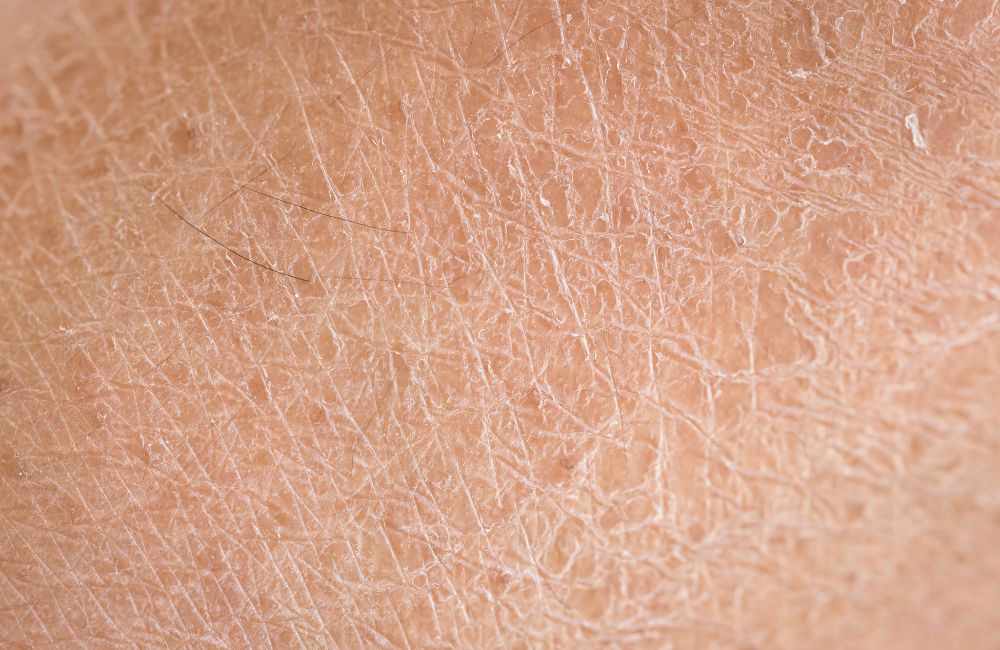
Dry skin, or xerosis, is a condition where your skin lacks moisture. If you have dry skin, you might notice that your skin feels rough, appears flaky or scaly, and itches. In severe cases, dry skin can crack, making it painful and susceptible to infection. For example, after spending a day outside during cold weather, your hands feel very rough and tight. This is a typical reaction to the environment and can significantly impact your quality of life by causing discomfort and self-consciousness. Moreover, when skin cracks, it’s an open door for germs, leading to infections if not treated.
If this persists despite home care, immediately visit a primary care doctor in Bridgeport, CT, for specialized treatments and advice tailored to your skin needs.
Not all dry skin is the same. There are several types of dry skin, and understanding which type you have is essential, especially when treating it effectively. If you’re unsure about your skin type, visiting a primary care doctor in Bridgeport, CT can help you get a proper diagnosis and treatment plan.
Contact dermatitis occurs when your skin comes into contact with an irritant or allergen, leading to dryness, itching, and redness. You might also develop a rash. Common triggers include jewelry metals (like nickel), cosmetics, detergents, and medications. If you experience persistent contact dermatitis, consulting a primary care doctor in Bridgeport, CT, can help identify the specific cause and recommend appropriate treatments.
Eczema encompasses a group of skin conditions that cause red, dry, bumpy, and itchy patches of skin. Severe eczema can lead to cracking, increasing the risk of infection. This condition often worsens with exposure to irritants, allergens, and stress. Managing eczema effectively often requires a multi-faceted approach, including seeing a primary care doctor in Bridgeport, CT, for personalized care and treatment options.
Seborrheic dermatitis primarily affects the scalp, leading to adult dandruff or cradle cap in infants. It can also cause dry, flaky patches on the face, chest, and inside creases of the arms, legs, or groin. Less commonly, it may affect the navel (belly button). This type of dermatitis occurs when the body reacts to a yeast that normally grows on the skin. If you suspect you have seborrheic dermatitis, a primary care doctor in Bridgeport, CT, can provide effective treatment strategies.
Athlete’s foot is a fungal infection but looks like dry skin on your feet. It causes dry, flaky skin on the soles and can also appear as “ringworm” when it affects other body parts. Athlete’s foot is highly contagious and requires proper treatment to prevent spreading. Seeking advice from a primary care doctor in Bridgeport, CT can ensure you receive the right antifungal treatments to combat this condition effectively.
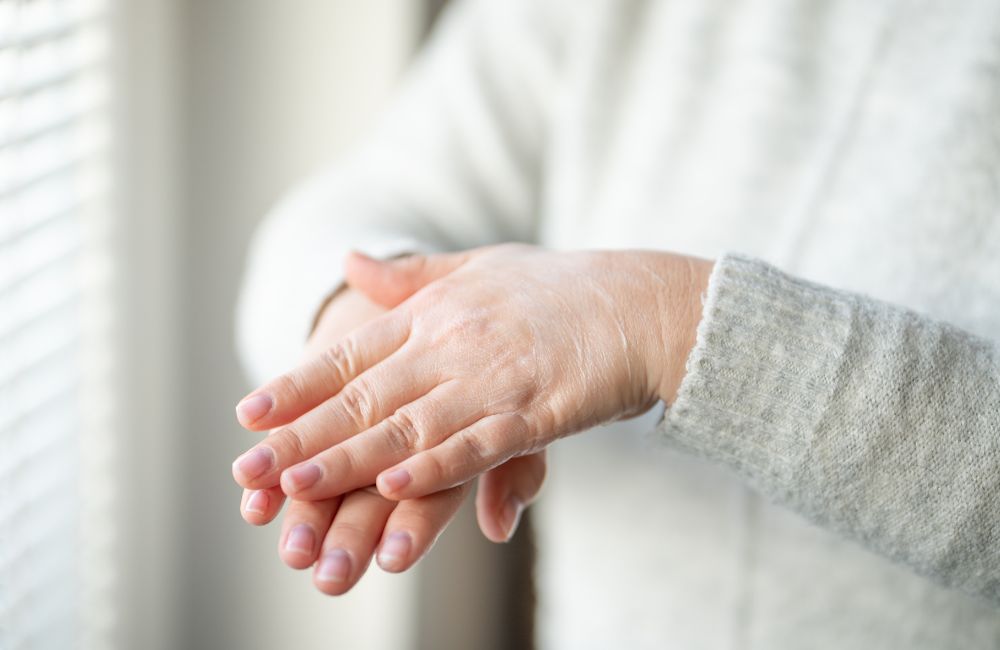
Dry skin can be caused by various factors, from environmental conditions to underlying health issues. Your primary care doctor in Bridgeport, CT, can determine these causes and provide the best treatment.
If you have dry skin, you might wonder when to see a primary care doctor in Bridgeport, CT. Not all dry skin needs a doctor’s visit, but sometimes, it’s important to get professional help.
Here’s how you can tell when to make that appointment:
If your skin stays dry and itchy no matter how much moisturizer you use, it could be a sign of a skin condition that needs treatment. A primary care doctor in Bridgeport, CT, can examine your skin and give you the right advice and treatments.
Sometimes, dry skin turns red and feels hot to the touch. This could be a sign of inflammation or infection. If you see these symptoms, it’s time to see your doctor. They can prescribe medication to reduce inflammation and treat any underlying problems.
Dry, cracked, and bleeding skin is a serious issue. Open skin can lead to infections, which can be sometimes severe. If this happens, a primary care doctor in Bridgeport, CT, can provide treatments to heal your skin and prevent infection.
If dry skin bothers you so much that it’s hard to do everyday activities, it’s a good reason to see a doctor. They can offer treatments that improve your skin’s health, making daily life easier.
If you’ve tried many lotions and creams and your skin isn’t improving, a doctor might offer stronger treatments. Sometimes, the skin needs more powerful treatments that can only be obtained from a healthcare provider.
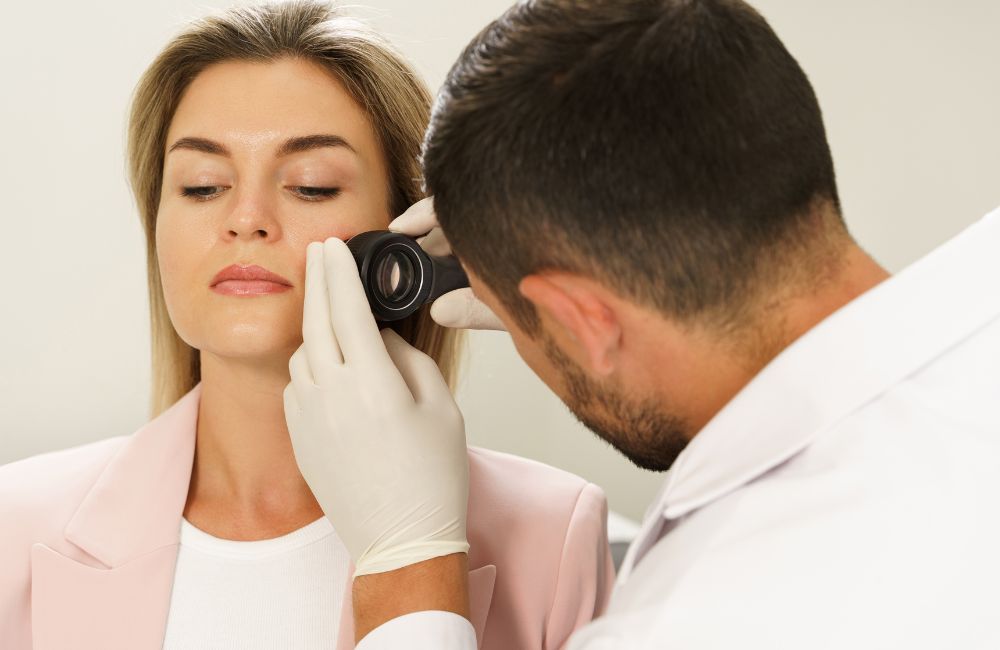
Dry skin can be uncomfortable and persistent, but it can be effectively managed with proper care. Diagnosing dry skin involves identifying the underlying causes and performing clinical tests by primary care doctors in Bridgeport, CT.
Treatment typically includes moisturizing products and lifestyle changes, while prevention focuses on maintaining skin hydration and protecting it from irritants. Consulting a primary care doctor in Bridgeport, CT, can provide a comprehensive approach to managing dry skin tailored to your needs.
Dry skin can often be diagnosed by appearance, but a comprehensive medical history and physical exam are essential. Your primary care doctor in Bridgeport, CT, will assess your symptoms and may order tests, if necessary, to identify any underlying health conditions. These tests can include:
Allergy tests help identify substances that may be causing allergic reactions, which can contribute to dry skin. Tests include:
Blood tests are essential for diagnosing underlying health issues that can cause or exacerbate dry skin. These may include:
A skin biopsy involves taking a small sample of skin tissue for laboratory analysis. This test can be crucial for diagnosing:
Dry skin can be a persistent nuisance, but there are effective treatments that a primary care doctor in Bridgeport, CT, can recommend or prescribe. This section explores medical treatments for dry skin, from over-the-counter options to more advanced prescription solutions.
Many cases of dry skin can be managed with over-the-counter (OTC) products. These include intensive moisturizers, ointments, and creams that lock in moisture. Products containing ingredients like hyaluronic acid, glycerin, and ceramides are particularly effective because they help restore the skin’s barrier. For example, a lotion containing lactic acid can be great for softening and moisturizing rough, dry skin.
For severe cases of dry skin, a visit to your trusted primary care doctor in Bridgeport, CT, is crucial. Other prescription treatments could include topical calcineurin inhibitors, which affect the immune system and help maintain normal skin texture and moisture levels. They can prescribe stronger creams and ointments with higher active ingredient concentrations, which reduce inflammation and irritation.
In more severe cases, treatments like phototherapy (treatment with light) may be recommended. This is especially true for skin conditions like psoriasis or severe eczema, where dry skin is a major symptom. Phototherapy involves exposing the skin to certain types of light to help control scaling and inflammation. This kind of treatment is usually coordinated by a specialist but often initiated by a referral from a primary care doctor in Bridgeport, CT.
In addition to medical treatments, many individuals find relief from dry skin through natural remedies and home care strategies. Simple changes in daily habits can significantly improve skin hydration and health:
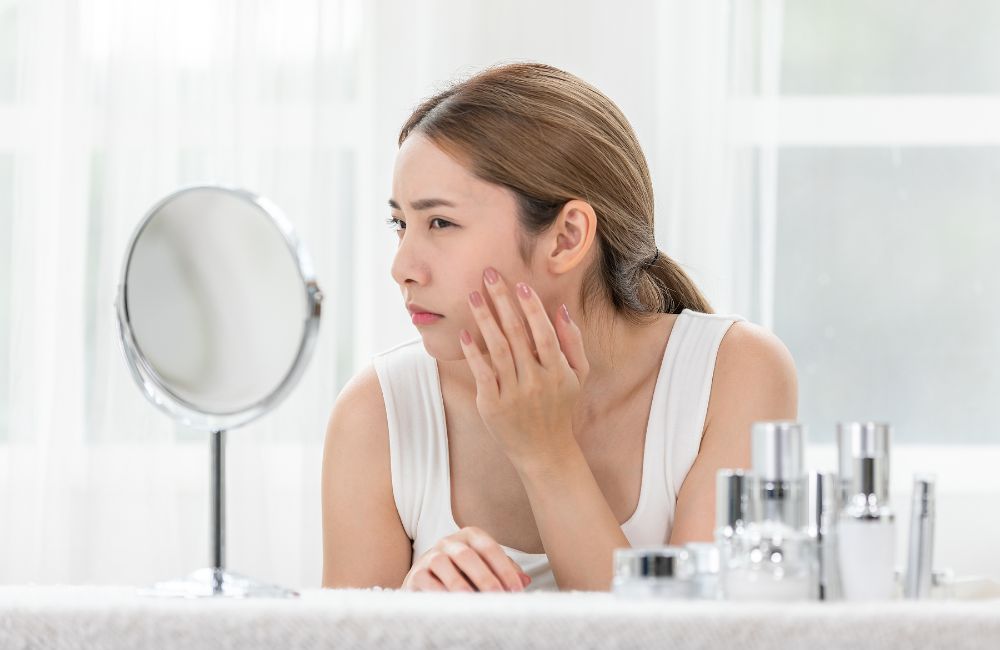
Maintaining a consistent daily skincare routine is essential for preventing dry skin. Here are some steps recommended by a primary care doctor in Bridgeport, CT, to help keep your skin hydrated and healthy:
Dry skin can be a simple condition or a sign of something more serious. It’s usually not a big worry, but it can be uncomfortable. If dry skin comes with other symptoms, like very red patches or bleeding, it might be time to see a primary care doctor in Bridgeport, CT.
Drinking more water does not directly hydrate the skin, especially if you’re not dehydrated. Studies indicate that, initially, dehydrated individuals can positively impact their skin’s appearance when they increase their water consumption.
If you have dry skin despite drinking a healthy amount of water, it’s best to visit a primary care doctor in Bridgeport, CT, to understand its causes.
For general dry skin, an annual visit to a primary care clinic in Bridgeport, CT, is often enough for most people. However, this can vary depending on factors like a family history of skin cancer, excessive sun exposure, or frequent tanning, which may necessitate more frequent check-ups. If symptoms like persistent rashes or unusual skin changes occur, it’s essential to consult a doctor promptly.
You’re over-cleansing or using the wrong cleanser. Cleansing too frequently can strip your skin of natural oils, leading to dryness despite using moisturizers. If you wash your face twice daily, try doing it only once and rinsing with water the other time.
A washcloth with a mild chemical exfoliator is recommended for dry, sensitive, or acne-prone skin, as mechanical exfoliation can be too harsh. Stronger chemical treatments or mechanical exfoliation may be more effective for those with oily or thicker skin. Consult this first with your primary care doctor in Bridgeport, CT.
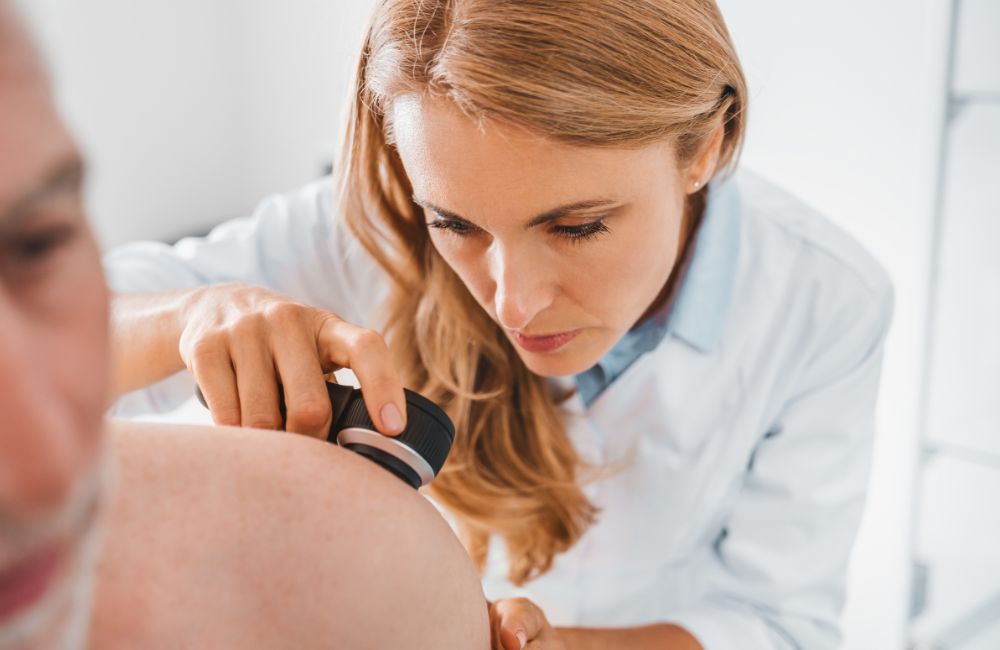
If you’re struggling with dry skin and looking for expert care, consider making an appointment with a primary care doctor at DOCS Primary Care – Bridgeport.
Our dedicated team is well-equipped to diagnose and treat various skin conditions, ensuring you receive the personalized care you deserve. Don’t let dry skin affect your life any longer. Trust the professionals at DOCS Primary Care – Bridgeport to provide effective solutions and compassionate care.
Visit our website or call us today to schedule your consultation and take the first step towards healthier skin.



During this surge in COVID-19 cases, our primary focus is meeting the high demand for tests, and we are seeing higher than usual wait times. This means we are unable to answer most phone calls. Please know that our teams are working very hard during this time to care for as many patients as safely as possible. Please click the button below for answers to common questions. We appreciate your understanding.